[4/7 開催]ハイレベル政策対話「UHC時代における感染症対策の日米および国際協調を考える」/High-level Policy Dialogue “Japan-U.S. and International Collaboration in the Fight Against Infectious Diseases in the Era of UHC”
English follows Japanese
ハイレベル政策対話「UHC時代における感染症対策の日米および国際協調を考える」
2013年に策定された日本の国家安全保障戦略には、「人間の安全保障」あるいは「地球規模課題」への対応が入っており、「感染症を含む国際保健課題」も一国のみでは対処できない地球規模の問題、脅威として言及されています。新型コロナウイルス感染症(COVID-19)の世界的流行は、まさに単なる健康危機管理という次元にとどまらず、日本を含めた世界の政治、経済、安全保障その他の問題を混乱させる結果となりました。
COVID-19はまた、国内外の脆弱な医療体制ならびに地域や国の経済と社会に大きな打撃を与え、今なお回復を困難にさせています。マラリア対策への影響も例外ではなく、最新の世界保健機関(WHO)が発表した「世界マラリア・レポート2021」によれば、2020年のマラリア患者数は2億4100万人、マラリアによる死亡者数は62万7000人と推定され、2019年と比較すると患者数が1400万人増加し、死亡者数が6万9000人増加したことになります。この増加した死亡者の約3分の2(4万7000人)は、COVID-19のパンデミックによるマラリア予防・診断・治療の提供の中断に関連していると考えられています。COVID-19とそれがもたらした社会的・経済的混乱は、平時からの強靭な医療体制の構築ならびに人材の確保と同時に公衆衛生危機へ備えることの必要性を再認識させるとともに、これまで国際社会で日本が主導してきたユニバーサル・ヘルス・カバレッジ(UHC)の重要性を改めて確認する機会となったと言えます。
マラリアとの戦いが終わることは、SDGs目標3.3の達成にとどまらず、人間の安全保障に基づくポスト・コロナの新たな時代に求められるUHCの達成を間近にすることを意味します。イベントを通じてUHC、保健システム強化の一環としてのマラリア対策実施の戦略的な意義、日米のリーダーシップとゼロマラリアに向けた連携の在り方および世界エイズ・結核・マラリア対策基金(グローバルファンド)を通じた感染症対策に向けての国際協調の重要性を考えます。
*本イベントはシンガポールに本部を置くマラリア連携団体「Asia Pacific Leaders Malaria Alliance(APLMA)」の助成を受けて開催されます。
概要
- 日時:2022年4月7日(木) 08:30-09:45
- 主催:認定NPO法人Malaria No More Japan
- 共催:2030年までにマラリアをなくすための議員連盟
- 後援:公益財団法人日本国際交流センター/グローバルファンド日本委員会
- 協力:Malaria No More、Asia Pacific Leaders Malaria Alliance (APLMA)、公益社団法人グローバルヘルス技術振興基金(GHIT Fund)
- 使用言語:日本語・英語(同時通訳あり)
- 参加方法:ZOOMにて視聴可能です。
- お申し込みURL:https://us02web.zoom.us/webinar/register/WN_aky_JXJoTd-CPGDI2qdfhA よりお申し込みください。
- 参加費:無料
スケジュール(予定):
08:15 開場
08:30 開会挨拶 神余隆博(ZEROマラリア2030キャンペーン実行委員会運営委員長)
来賓挨拶
松本剛明 衆議院議員、2030年までにマラリアをなくすための議員連盟会長
逢沢一郎 衆議院議員、グローバルファンド日本委員会 議員タスクフォース 共同議長
08:40 パネルディスカッション
- モデレーター:國井 修 グローバルヘルス技術振興基金 (GHIT Fund) CEO
- [ビデオメッセージ] ピーター・サンズ グローバルファンド事務局長
- 原 圭一 外務省国際協力局参事官(地球規模課題担当)
- ジュリー・ウォレス 米大統領マラリアイニシアティブ(PMI)グローバル・マラリア・コーディネーター代行
- 馬渕俊介 グローバルファンド保健システム部長
Q&A
09:45 閉会
登壇者略歴
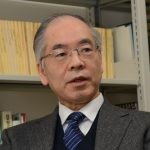 神余隆博(関西学院理事・同大学教授・国連外交統括センター長/Malaria No More Japan理事長)
神余隆博(関西学院理事・同大学教授・国連外交統括センター長/Malaria No More Japan理事長)
1972 年大阪大学法学部卒業、外務省入省。2002 年在デュッセルドルフ日本国総領事、2005 年外務省国際社会協力部長(大使)、2006 年国際連合日本政府代表部特命全権大使、2008 年在ドイツ特命全権大使等を歴任。1996年博士号(法学)取得。2012 年 3 月外務省退職。同年 4 月より関西学院大学副学長・国際連携機構長を歴任。ドイツ功労大十字勲章、フランス・シュバリエ勲章を受章。2017年 4 月より同大学国連・外交統括センター長。
松本剛明(衆議院議員、2030年までにマラリアをなくすための議員連盟 会長).jpg)
1959年4月25日 生まれ
1982年3月 東京大学法学部卒業
1982年4月 旧(株)日本興業銀行(現(株)みずほ銀行)入行
1989年8月 松本十郎国務大臣防衛庁長官秘書官
2000年6月 第42回衆議院議員総選挙 初当選
2005年9月 旧民主党政調会長
2009年9月 衆議院議院運営委員長
2011年3月 外務大臣
2017年9月 自由民主党入党
2018年10月 自由民主党政務調査会会長代理
2019年10月 衆議院外務委員長
2021年10月 衆議院議員8選
(現在)
衆議院 科学技術・イノベーション推進特別委員会 筆頭理事
文部科学委員会 委員
憲法審査会 委員
情報監視審査会 委員
自由民主党 国際協力調査会 会長
外交調査会 幹事長
新しい資本主義実行本部 副本部長
経済成長戦略本部 座長代理
行政改革推進本部 本部長代行
税制調査会 幹事
逢沢一郎(衆議院議員、グローバルファンド日本委員会 議員タスクフォース 共同議長)
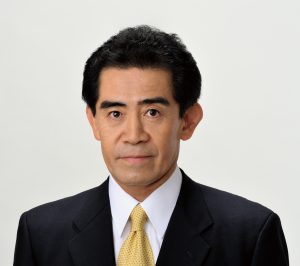 岡山県岡山市出身、慶應義塾大学工学部卒業、(財)松下政経塾一期生。昭和61年衆議院議員選挙で初当選、以来12期連続当選。通商産業政務次官、外務副大臣、自民党幹事長代理、自民党国会対策委員長、衆議院予算委員長、衆議院議院運営委員長、衆議院政治倫理審査会長等を歴任する。自民党選挙制度調査会 会長、UNHCR国会議員連盟 会長、日本・アフリカ連合友好議員連盟 会長、日豪議員連盟 会長、日本・ミャンマー友好議員連盟 会長、ボーイスカウト振興国会議員連盟 会長他
岡山県岡山市出身、慶應義塾大学工学部卒業、(財)松下政経塾一期生。昭和61年衆議院議員選挙で初当選、以来12期連続当選。通商産業政務次官、外務副大臣、自民党幹事長代理、自民党国会対策委員長、衆議院予算委員長、衆議院議院運営委員長、衆議院政治倫理審査会長等を歴任する。自民党選挙制度調査会 会長、UNHCR国会議員連盟 会長、日本・アフリカ連合友好議員連盟 会長、日豪議員連盟 会長、日本・ミャンマー友好議員連盟 会長、ボーイスカウト振興国会議員連盟 会長他
國井 修(GHIT Fund CEO)
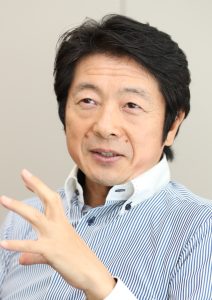
世界の低中所得国130カ国以上で感染症対策、母子保健、人道支援などの分野でグローバルヘルスに従事。一貫して、医療の行き届かない人々への医療技術とアクセスの向上に尽力。直近では、創設以来4400万人の命を救ってきた世界エイズ・結核・マラリア対策基金(略称:グローバルファンド)の戦略・投資・効果局長として、9年間にわたって、保健財政部、戦略情報部、技術支援・連携促進部、資金アクセス部、コミュニティ・人権・ジェンダー部などグローバルファンドの中枢を担う5つの部を統括。2030年までの三大感染症の流行終息を目指し投資対象国を支援。これまでに、ユニセフニューヨーク本部保健戦略上級アドバイザー、ミャンマー事務所保健・栄養チーフ、ソマリア事務所保健・栄養・水衛生支援事業部長、長崎大学熱帯医学研究所教授、東京大学国際地域保健学講師等を歴任。特に、長崎大学ではアジア・アフリカの研究拠点をつなぐ国際連携研究戦略本部の創設・運営に関わり、またインド洋津波後の感染症流行研究では、日本国内5機関による共同研究のリーダーを務めた。自治医科大学卒業、ハーバード公衆衛生大学院公衆衛生修士、及び東京大学大学院医学系研究科医学博士。
ピーター・サンズ(世界エイズ・結核・マラリア対策基金(グローバルファンド)事務局長)
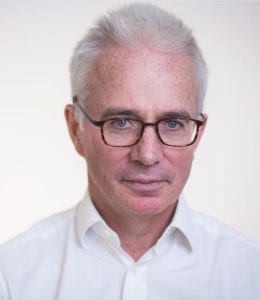 英国外務省、マッキンゼー・アンド・カンパニーでの勤務を経て、新興国・地域を主なマーケットとする英スタンダード・チャータード銀行グループの最高財務責任者に就任。2006年から2015年まで同行の最高経営責任者として、事業や利益を拡大し、政府援助を受けず欧州経済危機を回避したことで知られる。任期中、発展途上国の保健に重点を置く同銀行のCSRプログラムを統括し、寄付やロジスティック支援などエイズやマラリア対策に貢献した。その後、グローバルヘルス分野に身を投じ、ハーバード・グローバルヘルス研究所およびハーバード大学ケネディ・スクールのモサヴァー・ラーマニ政治経済センターのリサーチフェローに就任。金融界での豊富な経験を生かしグローバルヘルス財政分野で活躍、2015~2016年には、米国医学アカデミーの「グローバルヘルス・リスクフレームワーク委員会」の委員長、2016~2017年には、世界銀行の「パンデミックに備えるファイナンスに関する国際ワーキング・グループ」の議長を務めた。2017年11月のグローバルファンド理事会で事務局長に選出され、2018年3月5日にグローバルファンド事務局長に就任。オックスフォード大学卒業、ハーバード大学大学院公共経営学修了。
英国外務省、マッキンゼー・アンド・カンパニーでの勤務を経て、新興国・地域を主なマーケットとする英スタンダード・チャータード銀行グループの最高財務責任者に就任。2006年から2015年まで同行の最高経営責任者として、事業や利益を拡大し、政府援助を受けず欧州経済危機を回避したことで知られる。任期中、発展途上国の保健に重点を置く同銀行のCSRプログラムを統括し、寄付やロジスティック支援などエイズやマラリア対策に貢献した。その後、グローバルヘルス分野に身を投じ、ハーバード・グローバルヘルス研究所およびハーバード大学ケネディ・スクールのモサヴァー・ラーマニ政治経済センターのリサーチフェローに就任。金融界での豊富な経験を生かしグローバルヘルス財政分野で活躍、2015~2016年には、米国医学アカデミーの「グローバルヘルス・リスクフレームワーク委員会」の委員長、2016~2017年には、世界銀行の「パンデミックに備えるファイナンスに関する国際ワーキング・グループ」の議長を務めた。2017年11月のグローバルファンド理事会で事務局長に選出され、2018年3月5日にグローバルファンド事務局長に就任。オックスフォード大学卒業、ハーバード大学大学院公共経営学修了。
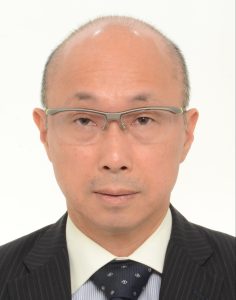 原 圭一 (外務省国際協力局 参事官(地球規模課題担当))
原 圭一 (外務省国際協力局 参事官(地球規模課題担当))
1969 年兵庫県生。1992 年東京大学法学部卒業、外務省入省。2001 年中東アフリカ局アフリカ第一課 首席事務官、総合外交政策局企画課 首席事務官、2003 年外務副大臣秘書官、2004 年~2008 年在フランス日本国大使館 一等書記官、2008 年~2010 年アジア大洋州局地域政策課 首席事務官、2012 年大臣官房会計課 首席事務官、2012 年国際協力局アフガニスタン支援室長、2013 年欧州局政策課長、2015 年国際協力局国別開発協力第一課長、2017 年~2019 年在アフガニスタン日本国大使館 参事官、公使、2019 年在中華人民共和国日本国大使館 公使を経て、2021 年より現職
ジュリー・ウォレス(米大統領マラリアイニシアティブ(PMI)グローバル・マラリア・コーディネーター代行)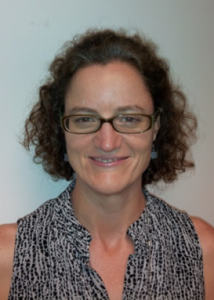
米国の公衆衛生システム内での勤務、グローバルヘルスコンサルタント、セネガルでの平和部隊のボランティアとしての勤務経験後、2011年4月からUSAIDのグローバルヘルス局内のPMIチームを率いるなど、PMIのシニアリーダーシップチームのメンバーとして活躍。25年以上にわたる国際開発と公衆衛生の現場で、複雑なグローバルヘルスプログラムを設計、指導、監督した経験を持ち、公共サービスに対する深い動機とコミットメントを発揮。2018年にはUSAIDのミッションを推進するための、同庁の名誉あるジョージ・C・マーシャル賞を受賞。2022年2月より現職。カトリック大学学士(看護学)、ワシントン大学シアトル校で公衆衛生学修士号および看護学修士号を取得。
馬渕俊介 グローバルファンド保健システム部長
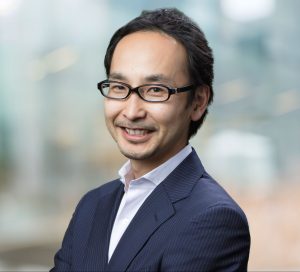 東京大学卒業後、JICA(独立行政法人国際協力機構)入構。2007年にハーバード大学ケネディスクール公共政策修士号取得。マッキンゼー・アンド・カンパニーの日本オフィス、南アフリカオフィスなどを経て、ジョンズ・ホプキンス大学にて公衆衛生修士号、世界銀行在職中に同博士号を取得。世界銀行で2014-16年に西アフリカで大流行したエボラ出血熱の緊急対策など、サブサハラアフリカ地域の保健医療システム改善のチームリーダーを務める。その後ビル&メリンダ・ゲイツ財団で戦略担当副ディレクター、シニアアドバイザーとして勤務、プライマリーヘルスケア戦略策定の共同リーダー、世界銀行、グローバル・ファイナンシング・ファシリティ、イスラム開発銀行とのパートナーシップの統括などを務める。また、世界のコロナ対策を評価し今後のパンデミック対策に向けた国際システムの改革を提案する独立パネル(Independent Panel for Pandemic Preparedness and Response: IPPPR) に事務局の中心メンバーとして参画。2022年3月より現職。
東京大学卒業後、JICA(独立行政法人国際協力機構)入構。2007年にハーバード大学ケネディスクール公共政策修士号取得。マッキンゼー・アンド・カンパニーの日本オフィス、南アフリカオフィスなどを経て、ジョンズ・ホプキンス大学にて公衆衛生修士号、世界銀行在職中に同博士号を取得。世界銀行で2014-16年に西アフリカで大流行したエボラ出血熱の緊急対策など、サブサハラアフリカ地域の保健医療システム改善のチームリーダーを務める。その後ビル&メリンダ・ゲイツ財団で戦略担当副ディレクター、シニアアドバイザーとして勤務、プライマリーヘルスケア戦略策定の共同リーダー、世界銀行、グローバル・ファイナンシング・ファシリティ、イスラム開発銀行とのパートナーシップの統括などを務める。また、世界のコロナ対策を評価し今後のパンデミック対策に向けた国際システムの改革を提案する独立パネル(Independent Panel for Pandemic Preparedness and Response: IPPPR) に事務局の中心メンバーとして参画。2022年3月より現職。
High-level Policy Dialogue “Japan-U.S. and International Collaboration in the Fight Against Infectious Diseases in the Era of UHC”
In Japan’s National Security Strategy, formulated in 2013, “human security” or “global issues,” are included and “global health challenges, including infectious diseases” are mentioned as global challenges and threats that cannot be addressed by a single country alone. The global pandemic of the new coronavirus disease (COVID-19) has gone beyond the mere management of health crises and resulted in the disruption of politics, economics, security and other issues in the world, including Japan.
COVID-19 has also caused heavy damage on the economies and societies of regions and countries with vulnerable health systems, both domestic and abroad, making recovery still difficult. The impact on malaria control is no exception, according to the latest World Health Organization (WHO) World Malaria Report 2021, 241 million cases and 627,000 deaths were estimated from malaria in 2020. Compared to 2019, the number of cases increased by 14 million and the number of deaths increased by 69,000. About two-thirds of the increased deaths (47,000) are thought to be related to disruptions in the provision of malaria prevention, diagnosis, and treatment due to the COVID-19 pandemic. COVID-19 and the social and economic disruption it brought about have reminded us of the need to build a resilient health system and secure human resources in peacetime, as well as to prepare for public health crises, and provided an opportunity to affirm the importance of Universal Health Coverage (UHC), which Japan has been leading in the international community.
The end of the fight against malaria means not only the achievement of the SDG target 3.3, but also getting closer to the achievement of UHC, which is required in the new post-COVID era based on human security. Through this event, we will consider the strategic implications of implementing malaria control as part of UHC and Health Systems Strengthening, the leadership of Japan and the U.S. and how we can work together to achieve zero malaria and the importance of international collaboration to fight infectious diseases through the Global Fund to Fight AIDS, Tuberculosis and Malaria (Global Fund) .
*The event is funded by the Asia Pacific Leaders Malaria Alliance (APLMA) headquartered in Singapore.
Outline
- Date:7th April 2022(Thu) 08:30am-09:45am (Japan time)
- Organized by Malaria No More Japan
- Co-organized by Parliamentary Group to End Malaria by 2030
- In collaboration with Japan Center for International Exchange/Friends of the Global Fund, Japan
- Supported by Malaria No More, Asia Pacific Leaders Malaria Alliance (APLMA), Global Health Innovative Technology Fund
- Language: Japanese & English (Simultaneous translation)
- Participation:You can participate through ZOOM webinar
- To register for the event, please click https://us02web.zoom.us/webinar/register/WN_aky_JXJoTd-CPGDI2qdfhA
- Participation fee : Free
Proposed schedule
08:15 Online opening
08:30 Opening remarks Dr.Takahiro Shinyo (Chair, Malaria No More Japan)
Guests speech
Hon. Takeaki Matsumoto Member of the House of Representatives, Chair, Parliamentary Group to End Malaria by 2030
Hon. Ichiro Aisawa Member of the House of Representatives, Co-chair, Friends of the Global Fund, Japan Diet Taskforce
08:40 Panel Discussion
- Moderated by: Dr. Osamu Kunii, CEO Global Health Innovative Technology Fund (GHIT Fund)
- [Video Message] Mr. Peter Sands, Executive Director, Global Fund
- Dr. Keiichi Hara, Deputy Director-General, International Cooperation Bureau, Ministry of Foreign Affairs of Japan
- Ms. Julie Wallace, Acting Global Malaria Coordinator, U.S. President’s Malaria Initiative
- Dr. Shunsuke Mabuchi, Head of Resilient and Sustainable Systems for Health, Global Fund
Q&A
09:45 Closing
Profile
Takahiro Shinyo, Chairman of the Board, Malaria No More Japan; Dean and Professor, Integrated Center for UN and Foreign Affairs Studies, Kwansei Gakuin University, Trustee of Kwansei Gakuin
 Dr. Shinyo graduated from Osaka University with a bachelor’s degree in law in 1972 and joined the Ministry of Foreign Affairs of the Government of Japan. In 2002, he became Consul-General of Japan in Dusseldorf. In 2005, he headed the Global Issues Department of the Ministry of Foreign Affairs. In 2006,he became the Ambassador Extraordinary and Plenipotentiary at the Permanent Mission of Japan to the United Nations. In 2008 he became the Ambassador Extraordinary and Plenipotentiary of Japan in the Federal Republic of Germany. He obtained his doctorial degree in law in 1996. In March 2012, Dr. Shinyo retired from the Ministry of Foreign Affairs. He became the Vice President of Kwansei Gakuin University (KGU) and the Head of the Organization for Worldwide Collaboration. He was awarded the Grand Order of Merit of the Federal Republic of Germany and Ordre National de la Légion d’honneur, Chevalier of the French Republic. In April 2017, Dr. Shinyo became the Dean of the Integrated Center for UN and Foreign Affairs Studies of KGU.
Dr. Shinyo graduated from Osaka University with a bachelor’s degree in law in 1972 and joined the Ministry of Foreign Affairs of the Government of Japan. In 2002, he became Consul-General of Japan in Dusseldorf. In 2005, he headed the Global Issues Department of the Ministry of Foreign Affairs. In 2006,he became the Ambassador Extraordinary and Plenipotentiary at the Permanent Mission of Japan to the United Nations. In 2008 he became the Ambassador Extraordinary and Plenipotentiary of Japan in the Federal Republic of Germany. He obtained his doctorial degree in law in 1996. In March 2012, Dr. Shinyo retired from the Ministry of Foreign Affairs. He became the Vice President of Kwansei Gakuin University (KGU) and the Head of the Organization for Worldwide Collaboration. He was awarded the Grand Order of Merit of the Federal Republic of Germany and Ordre National de la Légion d’honneur, Chevalier of the French Republic. In April 2017, Dr. Shinyo became the Dean of the Integrated Center for UN and Foreign Affairs Studies of KGU.
Takeaki Matsumoto, Member of House of Representatives, Chair, Parliamentary Group to End Malaria by 2030
Born on April 25, 1959
1982 Mar. Graduated from the University of Tokyo, Faculty of Law
1982 Apr. Joined the former Industrial Bank of Japan (now Mizuho Bank, Ltd.)
1989 Aug. Secretary to the Minister of State for Defense, Juro Matsumoto
2000 June First elected to the House of Representatives in the 42nd General Election
2005 Sep. Chairman of the Policy Research Council of the former Democratic Party
2009 Sep. Chairman of the House Steering Committee, House of Representatives
2011 Mar. Minister of Foreign Affairs
2017 Sep. Joined the Liberal Democratic Party
2018 Oct. 2018 Acting Chairman of the Liberal Democratic Party’s Policy Affairs Research Committee
2019 Oct. Chairman of the Foreign Affairs Committee, the House of Representatives
2021 Oct. 8th time elected to the House of Representatives
(Present)
The House of Representatives
Leading Director, the Special Committee on Promotion of Science and Technology and Innovation
Member, the Committee on Education, Culture, Sports, Science and Technology
Member, the Commission on the Constitution
Member, the Board of Oversight and Review of Specially Designated Secrets
The Liberal Democratic Party
Chairperson, Research Commission on International Cooperation
Secretary-General, Research Commission on Foreign Affairs
Vice Chairperson, Headquarters for Achieving New Capitalism
Acting Head, Headquarters for the Economic Growth Strategy, Policy Research Council
Acting Chairperson, Administrative Reform Promotion Headquarters
Manager, Research Commission on the Tax System
Ichiro AISAWA Member of the House of Representatives, Co-chair, Friends of the Global Fund, Japan Diet Taskforce
 [ Born ]
[ Born ]
June 10, 1954 in OKAYAMA
[ Education ]
1979 Graduated from Department of Administration Engineering Faculty of Science and Technology , Keio University
[ Career ]
1980-1985 Matsushita Institute of Government and Management as first trainee
1986 Elected to the House of Representatives
1992 Parliamentary Vice Minister of Economy, Industry and Trade
1996 Chairman of the House Committee on Foreign Affairs
2003 Senior Vice Minister for Foreign Affairs
2005 Acting Secretary-General of the Liberal Democratic Party,
2006 Chairman of the House Committee on Rules and Administration
2007 Chairman of the House Committee on Budget since September
2010 Chairman,Diet Affairs Committee Liberal Democratic Party
2013 Chairman of the House Committee on Rules and Administration
2014 Chairman of the Committee on Fundamental National Policies
2016 Chairman of the Deliberative Council on Political Ethics
[ Parliamentary Friendship Association Attached ]
Chairperson, Parliamentary Association for Boy Scouts Promotion
Chairperson, UNHCR Parliamentary Association
Chairperson, Japan-AU Parliamentary Friendship Association
Chairperson, Japan-Australian Friendship League
[ Area of Interest ]
Foreign Affairs/National Security
Energy, Environmental Problem
Social Security such as health insurance, nursing care, and pension
Osamu Kunii, MD, MPH, PhD CEO, GHIT Fund

Dr. Osamu Kunii is CEO and Executive Director at the GHIT Fund. He served as a Management Executive Committee member of the Global Fund to Fight AIDS, Tuberculosis and Malaria (the Global Fund), as Head of the Strategy, Investment and Impact Division. He was responsible for leading one of the largest divisions of the Global Fund, consisting of five departments (Health Finance; Strategy Information; Technical Advice and Partnerships; Access to Funding; and Community, Rights and Gender). He started his career as an internal medicine physician in Japan and made a shift to work for both governmental and non-governmental organizations, as he finds his passion in global health and feels it is his life’s work to contribute to this field. With his strong international experience working for multiple international organizations such as UNICEF and the Global Fund, coupled with his extensive interactions with other global organizations, he is interested in leveraging what he has learned and experienced to give back to Japan and Japanese organizations and lead innovation in global health.
Peter Sands, Executive Director, the Global Fund to Fight AIDS, Tuberculosis and Malaria
 Peter Sands became Executive Director of the Global Fund to Fight AIDS, Tuberculosis and Malaria in March 2018. A former Chief Executive Officer of Standard Chartered PLC, one of the world’s leading international banks, Sands has been a research fellow at Harvard University since 2015, dividing his time between the Mossavar-Rahmani Center for Business and Government at Harvard Kennedy School and the Harvard Global Health Institute, working on a range of research projects in financial markets and regulation, fintech and global health.
Peter Sands became Executive Director of the Global Fund to Fight AIDS, Tuberculosis and Malaria in March 2018. A former Chief Executive Officer of Standard Chartered PLC, one of the world’s leading international banks, Sands has been a research fellow at Harvard University since 2015, dividing his time between the Mossavar-Rahmani Center for Business and Government at Harvard Kennedy School and the Harvard Global Health Institute, working on a range of research projects in financial markets and regulation, fintech and global health.
In 2016-17, Sands chaired the International Working Group on Financing Pandemic Preparedness at the World Bank. In 2015-16, he was Chairman of the U.S. National Academy of Medicine’s Commission on a Global Health Risk Framework for the Future.
Sands began his career in the UK’s Foreign Office and then joined McKinsey & Company, where he worked for 13 years in the London office, advising clients in the financial services and telecommunications sectors. Sands graduated from Brasenose College, Oxford University with a First Class degree in Politics, Philosophy and Economics. He also received a Master’s in Public Administration from Harvard University, where he was a Harkness Fellow.
HARA Keiichi, Deputy Assistant Minister, Deputy Director-General for Global Issues, Minister’s Secretariat, International Cooperation Bureau, Ministry of Foreign Affairs of Japan
 1969.5 Born in Hyogo, Japan
1969.5 Born in Hyogo, Japan
1992.4 Joined Ministry of Foreign Affairs of Japan (MOFA)
1997.6 Third Secretary, Embassy of Japan in Senegal
2003.9 Executive Assistant to the State Minister for Foreign Affairs
2004.9 First Secretary, Embassy of Japan in France
2008.1 Principal Deputy Director, Regional Policy Division, Asian and Oceanian Affairs
2010.7 Principal Deputy Director, Financial Affairs Division, Minister’s Secretariat
2012.9 Director, Afghanistan Assistance Division, International Cooperation Bureau
2013.8 Director, European Policy Division, European Affairs Bureau
2015.6 Director, Country Assistance Planning Division Ⅰ, International Cooperation Bureau
2017.9 Counsellor, Embassy of Japan in Afghanistan
2019.6 Minister, Embassy of Japan in the People’s Republic of China
2021.4- Current position
Julie Wallace, Acting U.S. Global Malaria Coordinator, the President’s Malaria Initiative
 Julie Wallace began serving as Acting U.S. Global Malaria Coordinator, leading the President’s Malaria Initiative (PMI), in February 2022. Julie has been a member of PMI’s senior leadership team, including leading the PMI team within USAID’s Bureau for Global Health since April 2011. Julie has more than 25 years of international development and public health experience. Julie is a proven leader and manager experienced at building and developing successful and diverse teams and partnerships. She has demonstrated experience designing, leading and overseeing complex global health programs and has deep motivation and commitment to public service. In 2018, Julie was the recipient of the Agency’s prestigious George C. Marshall Award for Advancing the USAID Mission. Julie has past experience working within the U.S. public health system, as a global health consultant, and service as a Peace Corps Volunteer in Senegal. She holds a bachelor’s degree in nursing from Catholic University as well as a Master of Public Health and a Master of Nursing from the University of Washington in Seattle.
Julie Wallace began serving as Acting U.S. Global Malaria Coordinator, leading the President’s Malaria Initiative (PMI), in February 2022. Julie has been a member of PMI’s senior leadership team, including leading the PMI team within USAID’s Bureau for Global Health since April 2011. Julie has more than 25 years of international development and public health experience. Julie is a proven leader and manager experienced at building and developing successful and diverse teams and partnerships. She has demonstrated experience designing, leading and overseeing complex global health programs and has deep motivation and commitment to public service. In 2018, Julie was the recipient of the Agency’s prestigious George C. Marshall Award for Advancing the USAID Mission. Julie has past experience working within the U.S. public health system, as a global health consultant, and service as a Peace Corps Volunteer in Senegal. She holds a bachelor’s degree in nursing from Catholic University as well as a Master of Public Health and a Master of Nursing from the University of Washington in Seattle.
Shunsuke (Shun) Mabuchi,
 Shunsuke (Shun) Mabuchi leads the effort to build resilient and sustainable systems for health (RSSH) in Global Fund’s partner countries.
Shunsuke (Shun) Mabuchi leads the effort to build resilient and sustainable systems for health (RSSH) in Global Fund’s partner countries.
Prior to the Global Fund, Shun spent three and a half years at the Bill & Melinda Gates Foundation as Deputy Director for Strategy, Planning & Management, Integrated Delivery, and Senior Advisor for Health Funds and Partnerships and for the Global Delivery Programs. He played a central role in the development of the foundation’s Primary Healthcare and Integrated Delivery Strategies.
Shun also oversaw partnerships with the World Bank, Global Financing Facility (GFF), and Lives and Livelihood Funds (LLF) in the Islamic Development Bank. During this period, he also served as a secretariat member of the Independent Panel for Pandemic Preparedness and Response (IPPPR) co-chaired by Rt. Hon. Helen Clark and H.E. Ellen Johnson Sirleaf, leading the development of the panel’s recommendations.
Shun began his career working for McKinsey & Company, UNDP and the Japan International Cooperation Agency (JICA). He later served as a Senior Health Specialist at the World Bank, leading large projects from the Ebola Emergency Response in West Africa to health portfolios in Nigeria, Tanzania, Somalia, Liberia, and Sierra Leone.
Shun received his doctorate in public health from Johns Hopkins, and holds a master of public policy from the Harvard Kennedy School.